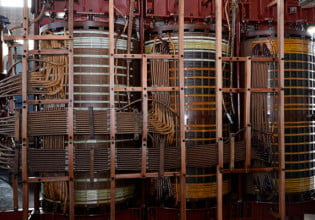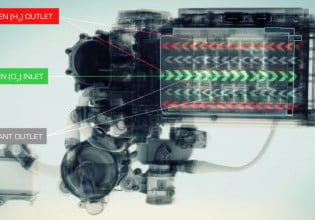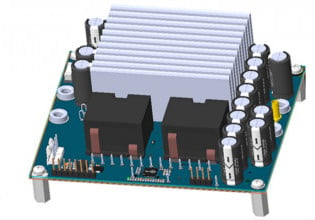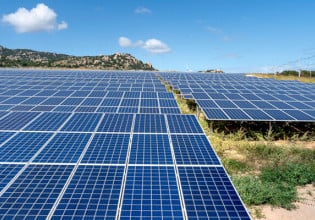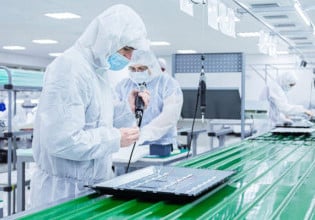Swedish truck and bus manufacturer AB Volvo said that it has developed a hybrid diesel-electric engine for trucks and buses that could go into production by 2009. The Volvo Group's hybrid concept provides maximum fuel-saving effects on routes with frequent braking and accelerations, for example, city bus traffic, city distribution, refuse collection and construction work. Calculations indicate that fuel savings can amount to 35 percent. Maintenance costs for vehicles can also be reduced through reduced wear on the braking system.
"There is a growing interest in the market to reduce fuel consumption. This is driven by the uncertainty surrounding the physical and political availability of oil, and perhaps primarily, by climate change issues. Accordingly, many customers are seriously reviewing how they can contribute to reduce the dependency on oil. We now have a technology that is interesting from a commercial viewpoint, which opens for a hybrid market for heavy vehicles", says Leif Johansson.
A vital part of the hybrid solution is designated I-SAM. The I-SAM combines the starter motor, drive engine and generator. I-SAM works together with, an automatic, converted mechanical transmission, which was developed within the Volvo Group, an electronic control unit as well as conventional diesel engine and batteries that are charged by braking energy.
Through linking the electric motor and diesel engine in parallel, they can work together to operate the vehicle. In this manner, the capacity of the hybrid is substantially increased compared with series hybrids, which are the standard solution currently being tested in heavy vehicles. I-SAM provides sufficient power resources to start and accelerate even heavy vehicles to an appropriate speed without assistance from the diesel engine. This also significantly reduces the noise level of the vehicle.
It is mainly due to the Volvo Group's experience and competence within development of diesel engines, electronics, electronic controls and transmissions that have enabled the production of an efficient hybrid for heavy vehicles.
The Volvo Group is also participating in the development of a new type of battery, Effpower, which is based on proven lead-acid technology used in start batteries in today's vehicles. Through this new technology, the power output has been doubled, while at the same time manufacturing costs for the batteries can be significantly reduced compared with alternatives on the market. With Effpower, the cost efficiency in electrical hybrids can be further enhanced.
"The hybrid is a long-term and highly interesting solution for efficient and environmentally-adapted transport activities. We are aware that oil prices for our customers will rise, and therefore, all solutions that reduce fuel consumption are highly attractive. The diesel engine in our hybrid solution can also be operated using biofuels, and consequently, transport activities can be conducted without carbon dioxide emissions. This paves the way for interesting developments toward long-term sustainable transport solutions," says Leif Johansson.


